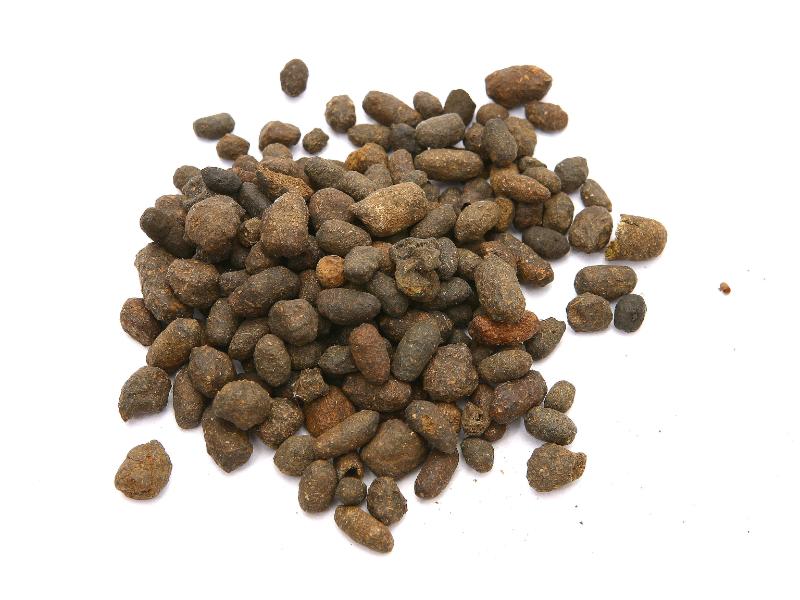Search in medicinals
Trogopteri Faeces
Squirrel’s droppings
五灵脂 〔五靈脂〕 wǔ líng zhī

Kingdom: Plant
Origin in PRC Pharmacopoeia: Trogopterus xanthipes Milne-Edwards. (PRC Pharmacopoeia)
Origin in unofficial sources: Trogopterus xanthipes Milne-Edwards; Pteromys volans L.
Use: Medicinal
Category: Blood-quickening stasis-transforming agents / Blood-quickening pain-relieving agents
Properties: Bitter, sweet; warm. (Some sources also give acrid or salty.)
Channel entry: Liver channel.
Actions and indications:
- Quickens the blood and relieves pain: Pain due to static blood obstruction, such as stabbing pain in the chest, rib-sides, stomach duct, and abdomen; menstrual pain; amenorrhea; postpartum stasis obstruction abdominal pain; and swelling and pain from bone fractures.
- Transforms stasis and stanches bleeding: Bleeding from internal obstruction of static blood and manifesting in flooding and spotting and/or profuse menstruation.
- Additional uses: Wǔ líng zhī treats
bites and stings from snakes, scorpions, and centipedes. In this application, it resolves toxin, disperses swelling, and relieves pain. It may be taken internally or applied topically and is frequently combined with Xióng huáng (雄黄 Realgar , realgar) for this application.
Dosage and method: Oral: 3–10g, decocted in a cloth bag; also used in powders, pills, and external applications.
Warnings: To be used with care in blood vacuity and the absence of stasis, as well as in pregnancy. According to the traditional theory of the nineteen fears, rén shēn (Ginseng Radix) fears wǔ líng zhī, so the two are generally not used together. Nonetheless, they are sometimes combined for stubborn cases of qì vacuity and enduring blood stasis.
Product description: Lump squirrel's droppings, líng zhī kuài 灵脂块: Oval shaped feces stuck together in lumps. The lumps are hard but break easily leaving a rough edge. They are fibrous in texture. Loose squirrel's droppings, líng zhī sǎn 灵脂散: Individual feces 5–15 mm long and 3–6 mm in diameter, dark brown on the outside and light brown on the cross section. They are fibrous in texture.
Quality: The best quality is free of extraneous matter. Loose squirrel's droppings are considered inferior to lump squirrel's droppings.
Production area: Héběi, Shānxī.
Etymology: The name wǔ líng zhī 五灵脂 literally means five-spirit paste,
understood to a pasty like substance that has received the spirit-like qì of the five phases.